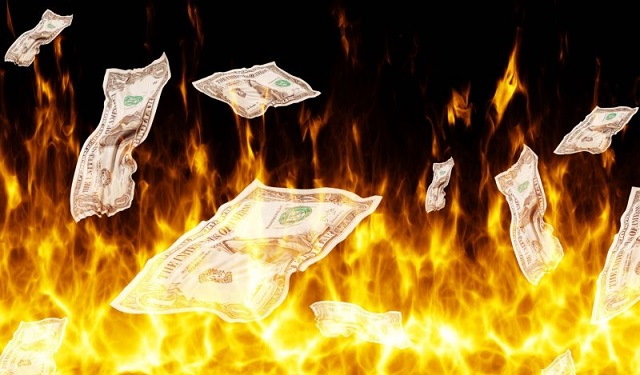Censorship Industrial Complex
Kennedy, CHD win injunction in landmark censorship case against Biden administration

From LifeSiteNews
This article was originally published by The Defender — Children’s Health Defense’s News & Views Website.
The court recognized that the “right of free speech is a fundamental constitutional right that is vital to the freedom of our nation, and the Kennedy plaintiffs have produced evidence of a massive effort by defendants, from the White House to federal agencies, to suppress speech based on its content.”
A federal judge on Wednesday handed Robert F. Kennedy Jr. and Children’s Health Defense (CHD) a partial win in their landmark censorship case alleging the Biden administration colluded with social media platforms to unlawfully censor online content.
Judge Terry A. Doughty of the U.S. District Court for the Western District of Louisiana issued a preliminary injunction prohibiting key Biden administration officials and agencies from coercing or significantly encouraging social media platforms to suppress or censor online content.
However, Judge Doughty simultaneously issued a stay on the injunction until 10 days after the U.S. Supreme Court rules on a similar case, Murthy v. Missouri.
That case, filed in May 2022 by the attorneys general of Missouri and Louisiana and several individual plaintiffs, was originally filed as Missouri v. Biden.
The Supreme Court is set to hear arguments on March 18 on a preliminary injunction in Murthy v. Missouri.
Mary Holland, CHD president, told The Defender that the Valentine’s Day ruling was “a welcome Valentine to the Kennedy plaintiffs,” and “an important victory for the U.S. Constitution.”
She added:
“In a thorough decision, Judge Doughty reasoned that the plaintiffs do have ‘standing’ or the right to sue and be heard; that the defendants have engaged in coercion or significant encouragement to censorship and joint action with social media platforms; and that the court is required to issue the preliminary injunction.
“Further, because it is well-established that violations of free speech rights constitute irreparable injury, the Court acted even before an ultimate decision from the Supreme Court in Murthy v. Missouri. Judge Doughty wrote: ‘This Court … finds the balance of equities and the public interest strongly favors the issue of a preliminary injunction.’
“No doubt the Supreme Court will take account of this ruling as it hears oral arguments in Murthy v. Missouri on March 18.”
Wednesday’s ruling stems from a class-action lawsuit filed in March 2023 by Kennedy, now CHD chairman on leave, CHD and private citizen Connie Sampognaro against President Joe Biden, Dr. Anthony Fauci and other top administration officials and federal agencies.
The suit was filed on behalf of the more than 80% of Americans who access news through social media.
Judge Doughty consolidated Kennedy v. Biden and Murthy v. Biden in July 2023. Both cases were being argued in his court and had the same defendants and many common legal and factual issues.
Although the cases were consolidated, Doughty ruled that the District Court continues to have jurisdiction over Kennedy and CHD’s separate motion for a preliminary injunction, underscoring the fact that a delayed ruling would delay Kennedy from vindicating his claims.
The U.S. Department of Justice did not respond to The Defender’s request for comment.
‘The right of free speech is a fundamental constitutional right’
In his 24-page ruling, Judge Doughty found that several of the defendants in the Kennedy et al. v. Biden lawsuit were violating the plaintiffs’ free speech rights under the First Amendment, causing irreparable harm. He ordered them to cease these violations.
The court recognized that the “right of free speech is a fundamental constitutional right that is vital to the freedom of our nation, and the Kennedy plaintiffs have produced evidence of a massive effort by defendants, from the White House to federal agencies, to suppress speech based on its content.”
Plaintiffs alleged Biden administration officials “waged a systematic, concerted campaign” to compel the nation’s three largest social media companies to censor constitutionally protected speech.
The government, the lawsuit alleges, pressured social media platforms to directly suppress or censor Kennedy and CHD from major platforms and to do the same to content containing views about COVID-19 and other issues that contradicted the government narrative.
Kennedy and CHD argued the court should rule on the preliminary injunction now, because the case is different from Murthy v. Missouri, asks for a more specific injunction and because the defendants singled out Kennedy, who is a U.S. presidential candidate, for censorship.
In determining the merits of the plaintiffs’ motion, Doughty first had to rule on whether the plaintiffs had standing. On that issue, “the court provided strong concrete examples of government coercion or encouragement to censor, particularly with respect to Mr. Kennedy and CHD,” said Kim Mack Rosenberg, CHD general counsel.
Doughty cited evidence that defendants labeled Kennedy as part of the “Disinformation Dozen” who were eventually censored from social media and that some of CHD’s social media posts were also censored.
He also noted that the Centers for Disease Control and Prevention (CDC) worked with the Virality Project to reduce or delete social media posts by people and organizations they believed to be spreading “misinformation” about COVID-19.
The Virality Project explicitly listed Kennedy and CHD in the fifth and second place as the highest performing weekly social-media engagement incidents, he wrote.
“This evidence also was key in the Court’s decision that plaintiffs met all the requirements to support issuing the injunction and that the balance of equities favored plaintiffs here,” Mack Rosenberg added.
Doughty also found the plaintiffs are likely to succeed on the merits of their claim, writing:
“As in Missouri v. Biden, the White House Defendants and the Surgeon General Defendants both coerced and significantly encouraged social-media platforms to suppress protected free speech.
“This Court further finds the CDC Defendants, the CISA [Cybersecurity and Infrastructure Security Agency] Defendants and the FBI Defendants significantly encouraged social-media platforms to suppress protected free speech.”
Defendants ‘likely’ to use their power to suppress alternative views in the future
The defendants have argued that the actions at stake occurred in the past and cannot be remedied by issuing an injunction prohibiting future actions and that there is no “imminent harm” to the defendants because the COVID-19 pandemic and the election where the alleged conduct occurred are in the past.
However, Doughty ruled that the alleged past actions also indicate there is a substantial risk of likely future harm.
“Defendants apparently continue to have meetings with social-media companies and other contacts,” he wrote, adding:
“Although the COVID-19 pandemic is no longer an emergency, it is likely that in the event of any other real or perceived emergency event, the Defendants likely would once again use their power over social-media companies to suppress alternative views.
“And it is certainly likely that Defendants could use their power over millions of people to suppress alternative views or moderate content they do not agree with in the upcoming 2024 national election.”
Although Doughty granted a substantial part of Kennedy et al.’s motion for a preliminary injunction against the White House, the surgeon general, the CDC, FBI and the CISA, he also denied the request for an injunction against several other agencies.
The injunction excluded the U.S. Department of State, the National Institute of Allergy and Infectious Diseases, the U.S. Food and Drug Administration, the U.S. Department of the Treasury, the U.S. Election Assistance Commission, and the U.S. Department of Commerce, who were also included in the plaintiffs’ request.
The Defender on occasion posts content related to Children’s Health Defense’s nonprofit mission that features Mr. Kennedy’s views on the issues CHD and The Defender regularly cover. In keeping with Federal Election Commission rules, this content does not represent an endorsement of Mr. Kennedy who is on leave from CHD and is running for president of the U.S. as an independent candidate.
This article was originally published by The Defender — Children’s Health Defense’s News & Views Website under Creative Commons license CC BY-NC-ND 4.0. Please consider subscribing to The Defender or donating to Children’s Health Defense.
Censorship Industrial Complex
Quebec court greenlights class action suit against YouTube’s COVID-related content censorship
From LifeSiteNews
The lawsuit, led by video blogger Éloïse Boies, argues YouTube violated freedom of expression under the Charter of Human Rights and Freedoms by censoring COVID-related content.
A class action lawsuit against YouTube’s censorship of COVID-era speech on the platform has been allowed to proceed in Canada.
The primary plaintiff in the case which has now been greenlit by the Quebec Superior Court is YouTuber Éloïse Boies, while the filing accuses the Google video platform of censoring information about vaccines, the pandemic, and the virus itself.
A copy of the order can be found HERE.
READ: Elon Musk skewers Trudeau gov’t Online Harms bill as ‘insane’ for targeting speech retroactively
Boies, who runs the “Élo Wants to Know” channel, states in the lawsuit that three of her videos got removed by YouTube (one of the censored videos was about… censorship) for allegedly violating the website’s policies around medical disinformation and contradicting World Health Organization and local health authorities’ COVID narratives of the time.
However, the content creator claims that the decisions represented unlawful and intentional suppression of free expression. In February, Boies revealed that in addition to having videos deleted, the censorship also branded her an “antivaxxer” and a “conspiracy theorist,” causing her to lose contracts.
The filing cites the Charter of Human Rights and Freedoms as the document YouTube violated, while the class-action status of the lawsuit stems from it including any individual or legal entity in Quebec whose videos dealing with COVID got censored, or who were prevented from watching such videos, starting in mid-March 2020 and onward.
Google, on the other hand, argues that it is under no obligation to respect the Charter of Human Rights and Freedoms, and can therefore not be held accountable for decisions to censor content it doesn’t approve of – or as the giant phrased it, provide space for videos “regardless of their content.”
But when Superior Court Judge Lukasz Granosik announced his decision, he noted that freedom of expression “does not only mean freedom of speech, but also freedom of publication and freedom of creation.”
Stressing the importance that Canada’s Supreme Court assigns to guaranteed freedom of expression as a key building block in a democratic society, the judge concluded that “If (Google) carries out censorship by preventing certain people from posting videos and prevents other people from viewing these same videos, it thus hinders the free circulation of ideas and exposes itself to having to defend its ways of doing things.”
Google was ordered to stop censoring content because it contradicts health authorities, WHO, or governments, pay $1,000 in compensation, and $1,000 in punitive damages to each of the lawsuit’s plaintiffs, as well as “additional compensation provided for by law since the filing of the request for authorization to take collective action, as per the court’s decision.”
As for those who were prevented from accessing content, the decision on damages will be the subject of a future hearing.
Reprinted with permission from Reclaim The Net.
Brownstone Institute
Book Burning Goes Digital

From the Brownstone Institute
BY
In March 2021, the Biden White House initiated a brazenly unconstitutional censorship campaign to prevent Americans from buying politically unfavorable books from Amazon.
The effort, spearheaded by White House censors including Andy Slavitt and Rob Flaherty, began on March 2, 2021, when Slavitt emailed Amazon demanding to speak to an executive about the site’s “high levels of propaganda and misinformation and disinformation.”
Their subsequent discussions remain unknown, but recently released emails from the House Judiciary Committee reveal that the censors achieved their intended result. Within a week, Amazon adopted a shadow ban policy.
Company officials wrote in internal emails, “The impetus for this request is criticism from the Biden administration about sensitive books we’re giving prominent placement to, and should be handled urgently.” They further clarified that the policy was “due to criticism from the Biden people,” presumably meaning Slavitt and Flaherty.
At the time, “vaccine misinformation” was parlance for inconvenient truths. Five months after the Amazon censorship crusade, Twitter banned Alex Berenson at the Government’s behest for noting that the shots do not prevent infection or transmission. Senator Elizabeth Warren (D-MA) favorably cited his Twitter ban in a September 2021 letter to Amazon calling for increased censorship of books.
A similar process occurred at Facebook. Mark Zuckerberg wrote in internal emails that the platform decided to ban claims related to the lab-leak theory in February 2021 after “tense conversations with the new Administration.” Facebook executive Nick Clegg similarly wrote that the censorship was due to “pressure from the [Biden] administration and others to do more.” Another internal Facebook email from August 2021 wrote that the company had implemented new “misinformation” policies “stemming from the continued criticism of our approach from the [Biden] administration.”
Not only does the Biden regime’s call for de facto book bans lead to the suppression of true information regarding lockdowns, vaccine injuries, and the lab-leak theory; it was also a clear violation of the First Amendment.
The Supreme Court weighed in on a nearly identical case over sixty years ago.
In 1956, the Rhode Island legislature created a “Rhode Island Commission to Encourage Morality in Youth.” Like “public health” or “inclusivity,” the innocuous language was a Trojan Horse for censorship.
The Commission sent notices to bookshops and book dealers that potentially violated Rhode Island’s obscenity laws. The book dealers challenged the constitutionality of the Commission, and the case made its way to the Supreme Court in Bantam Books v. Sullivan.
The New York Times’ description of the case from 1962 could be transposed to a modern article on the Amazon Files, but The Gray Lady has deemed the news unfit to print and has ignored the revelations entirely.
The challengers argued that the Commission acted “as a censor” while the Government “contended that its purpose was only to educate people,” the Times explained. The Government, desperate to maintain its benevolent facade, insisted its “hope [was] that the dealer would ‘cooperate’ by not selling the branded books and magazines.”
But the Government’s call for “cooperation” was a thinly veiled threat. The Commission did not just notify the booksellers; they also sent copies of the notices to the local police, who “always called dealers within 10 days of the notice to see whether the offending items had been withdrawn,” according to the book dealers.
“This procedure produced the desired effect of frightening off sale of the books deemed objectionable,” a book dealer told The Times. They complied, “not wanting to tangle with the law.”
The Supreme Court ruled 8-1 that the Committee’s reports violated the Constitutional rights of the book dealers. Justice William O. Douglas wrote in a concurring opinion: “This is censorship in the raw; and in my view the censor and First Amendment rights are incompatible.”
Here, we again see censorship in the raw; bureaucratic thugs, using the power of the US federal government, call for the suppression of information that they find politically inconvenient. They hide behind the innocuous language of “public health” and “public-private partnerships,” but the Leviathan’s “requests” carry an implicit threat.
As we wrote in “The Censors’ Henchmen,” the censorship demands from White House lackeys Rob Flaherty and Andy Slavitt are like mobsters’ interrogations. Just months after the Amazon demands, Flaherty wrote to Facebook, “We are gravely concerned that your service is one of the top drivers of vaccine hesitancy – period.” Then came the demands: “We want to know that you’re trying, we want to know how we can help, and we want to know that you’re not playing a shell game…This would all be a lot easier if you would just be straight with us.”
In other words, we can do this the easy way or the hard way. Nice company you have here – it would be a shame if something happened to it.
When companies refused to comply, Biden’s henchmen responded with scorn. Facebook ignored one censorship request, and Flaherty exploded: “Are you guys fucking serious? I want an answer on what happened here and I want it today.”
Failure to comply would threaten Amazon’s substantial government contracting operations. In April 2022, Amazon received a $10 billion contract from the NSA. Later that year, the US Navy granted Amazon a $724 million cloud computing contract, and the Pentagon awarded Amazon an additional $9 billion in contracts. Amazon also has ongoing contracts with the CIA that could be worth “tens of billions” of dollars.
“Cooperation” is a prerequisite for these lucrative agreements. Sixty years ago, the Court recognized the threat that Government demands for “cooperation” posed to liberty in Bantam Books. Ten years later, the Court held in Norwood v. Harrison that it is “axiomatic that a state may not induce, encourage or promote private persons to accomplish what it is constitutionally forbidden to accomplish.”
Since then, skyrocketing government spending and public-private partnerships have further blurred the line between state and private persons at the cost of our liberties.
The recent Amazon revelations add to the censors’ parade of horribles that have been uncovered in recent years. The Supreme Court will rule on the crux of the battle between free speech and Biden’s cosa nostra next month in Murthy v. Missouri.
Meanwhile, the revelations keep pouring in, adding to what we know but still concealing the fullness of what might actually have been happening. Adding to the difficulty is that the revelations themselves are not being widely reported, raising serious questions concerning just how much in the way of independent media remains following this brutal crackdown on free speech that took place with no legislation and no public oversight.
-
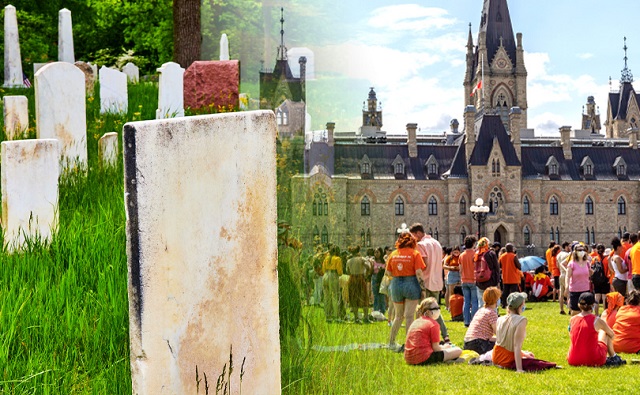
 National2 days ago
National2 days agoDespite claims of 215 ‘unmarked graves,’ no bodies have been found at Canadian residential school
-
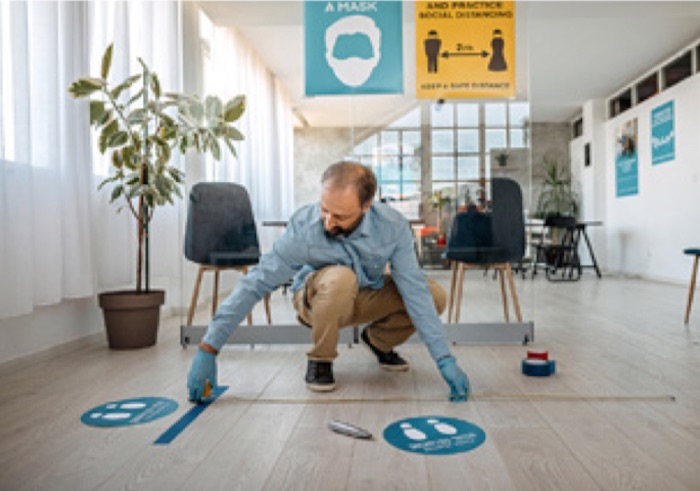
 Brownstone Institute2 days ago
Brownstone Institute2 days agoThe WHO’s Proposed Pandemic Agreements Worsen Public Health
-
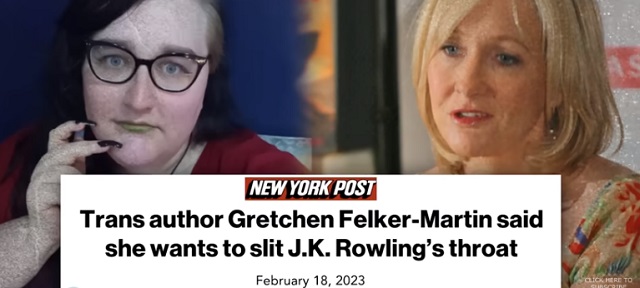
 John Stossel1 day ago
John Stossel1 day agoProtecting Free Speech: The Early Warning Signs From Around The World
-

 armed forces1 day ago
armed forces1 day agoTrudeau government has spent $10 million promoting DEI in the military as recruitment flounders
-
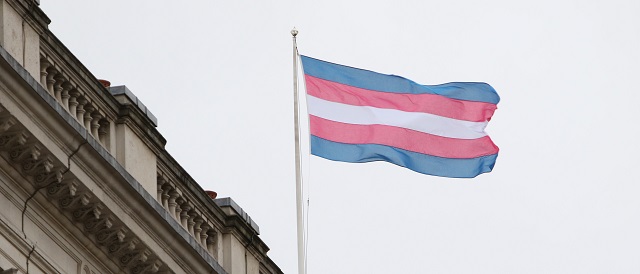
 Health2 days ago
Health2 days agoTHE WPATH TAPES: Behind-The-Scenes Recordings Reveal What Top Gender Doctors Really Think About Sex Change Procedures
-
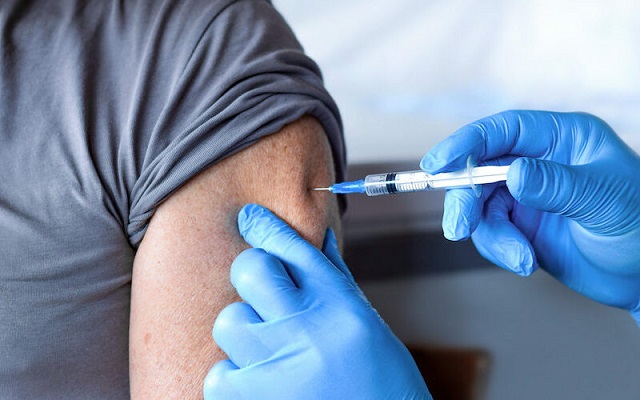
 COVID-192 days ago
COVID-192 days agoTrudeau’s public health agency recommends another experimental COVID booster
-
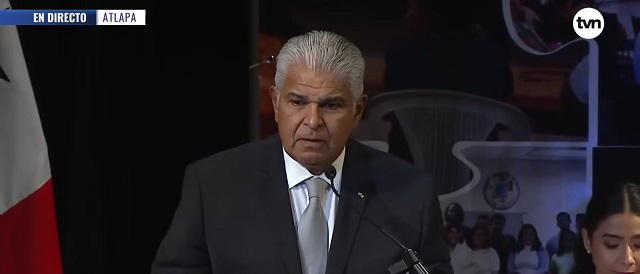
 illegal immigration2 days ago
illegal immigration2 days agoPanama’s Incoming President Wants To Shut Down His Country’s Most Treacherous Route For Migrants — But Will It Work?
-
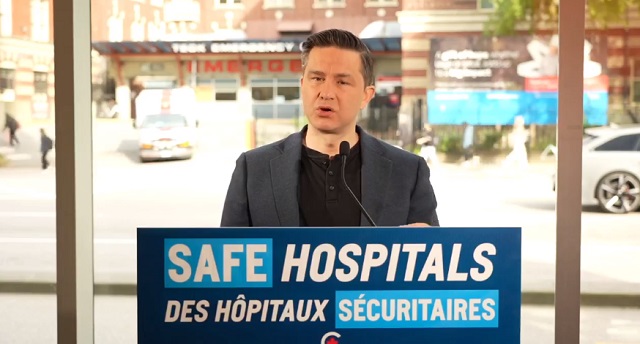
 Addictions1 day ago
Addictions1 day agoPoilievre attacks decriminalization of hard drugs with Safe Hospitals Act






